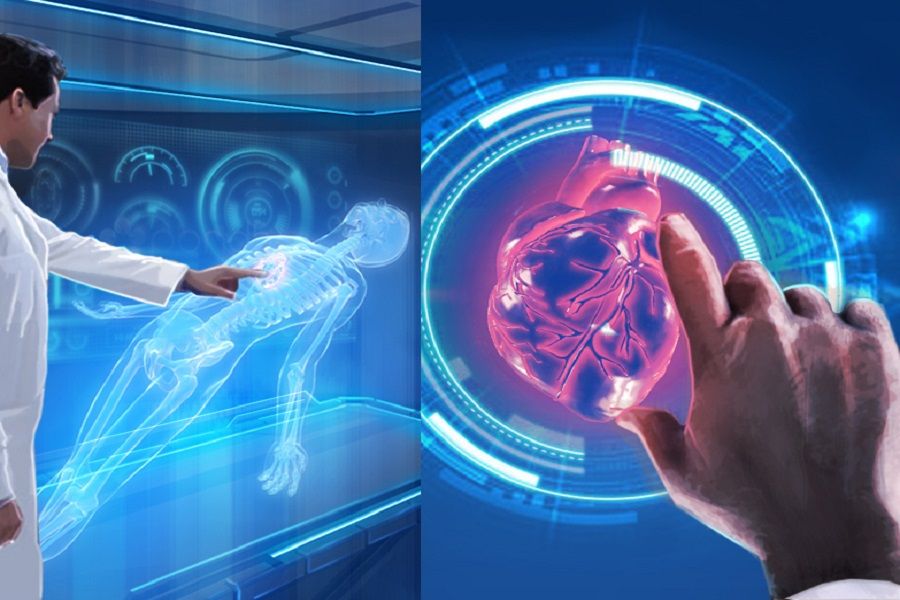The future of healthcare is being dramatically transformed by technology, paving the way for innovative solutions that enhance patient care and streamline medical practices. As we delve into the intricate relationship between healthcare and technology, we will explore how advancements such as telemedicine, artificial intelligence, and wearable devices are not only improving patient outcomes but also reshaping the entire healthcare landscape. This article will provide insights into the key trends and technologies that are defining the future of healthcare, making it essential reading for anyone interested in the evolution of this vital industry.
In the following sections, we will examine the role of telehealth in increasing access to medical services, particularly in underserved areas. We will also discuss the impact of artificial intelligence on diagnostics and treatment plans, showcasing how machine learning algorithms are revolutionizing the way healthcare professionals make decisions. Additionally, we will highlight the significance of wearable technology in monitoring health metrics and promoting preventive care, empowering patients to take charge of their health like never before.
As we navigate through these exciting developments, you will gain a deeper understanding of how technology is not just a tool but a catalyst for change in the healthcare industry. Join us on this journey to discover the future of healthcare and learn how these innovations are set to improve lives and redefine the patient experience. Don’t miss out on the opportunity to stay informed about the trends that are shaping the healthcare of tomorrow!
Telemedicine: Revolutionizing Patient Care
Telemedicine has emerged as a transformative force in the healthcare industry, particularly in the wake of the COVID-19 pandemic. This technology allows healthcare providers to deliver care remotely, using video conferencing, mobile apps, and other digital tools. Patients can now consult with their doctors from the comfort of their homes, reducing the need for in-person visits. This shift not only enhances accessibility for patients in rural or underserved areas but also streamlines the healthcare process, making it more efficient and cost-effective.
Moreover, telemedicine has proven to be particularly beneficial for managing chronic conditions. Patients with diabetes, hypertension, or mental health issues can receive regular check-ins and support without the hassle of traveling to a clinic. This continuous monitoring can lead to better health outcomes, as healthcare providers can quickly adjust treatment plans based on real-time data. As technology continues to advance, the integration of artificial intelligence and machine learning into telemedicine platforms is expected to further personalize patient care, making it more responsive to individual needs.
Wearable Health Technology: Empowering Patients
Wearable health technology, such as fitness trackers and smartwatches, is playing an increasingly significant role in the future of healthcare. These devices enable individuals to monitor their health metrics, including heart rate, sleep patterns, and physical activity levels, in real-time. By providing users with immediate feedback on their health, wearables empower patients to take charge of their wellness and make informed lifestyle choices. This proactive approach to health management can lead to early detection of potential health issues, ultimately reducing the burden on healthcare systems.
Additionally, the data collected from wearable devices can be invaluable for healthcare providers. By analyzing this information, doctors can gain insights into a patient’s daily habits and overall health trends. This data-driven approach allows for more personalized treatment plans and can enhance the effectiveness of preventive care strategies. As the technology behind wearables continues to evolve, we can expect to see even more sophisticated devices that integrate seamlessly with electronic health records, further bridging the gap between patients and healthcare providers.
Artificial Intelligence in Diagnostics: Enhancing Accuracy
Artificial intelligence (AI) is revolutionizing diagnostics in the healthcare sector, offering tools that enhance the accuracy and speed of disease detection. Machine learning algorithms can analyze vast amounts of medical data, including imaging studies, lab results, and patient histories, to identify patterns that may be missed by human clinicians. This capability not only improves diagnostic accuracy but also helps in predicting patient outcomes, allowing for timely interventions.
AI-driven diagnostic tools are particularly beneficial in fields such as radiology and pathology, where they assist in identifying conditions like cancer at earlier stages. By reducing the likelihood of human error and providing second opinions, AI can significantly improve patient safety and treatment efficacy. As these technologies become more integrated into clinical workflows, healthcare professionals will be better equipped to make informed decisions, ultimately leading to improved patient care and outcomes.
| Technology | Description | Impact on Healthcare |
|---|---|---|
| Telemedicine | Remote diagnosis and treatment through telecommunications technology. | Increases access to care, especially in rural areas, and reduces the need for in-person visits. |
| Artificial Intelligence (AI) | Machine learning algorithms that analyze data to assist in clinical decision-making. | Enhances diagnostic accuracy, predicts patient outcomes, and personalizes treatment plans. |
| Wearable Technology | Devices that monitor health metrics such as heart rate, activity levels, and sleep patterns. | Empowers patients to take charge of their health and provides real-time data to healthcare providers. |
| Electronic Health Records (EHR) | Digital version of patients’ paper charts that can be shared across different healthcare settings. | Improves coordination of care, reduces errors, and enhances patient safety. |
| Blockchain | A decentralized ledger technology that ensures secure and transparent transactions. | Enhances data security, improves patient privacy, and streamlines the sharing of medical records. |
| Robotics | Use of robots in surgery, rehabilitation, and patient care. | Increases precision in surgeries, reduces recovery times, and assists in elderly care. |
| 3D Printing | Creating custom prosthetics, implants, and even tissues using 3D printing technology. | Allows for personalized medical solutions and reduces costs associated with traditional manufacturing. |
| Big Data Analytics | Analyzing large sets of health data to identify trends and improve patient outcomes. | Facilitates population health management and enhances research capabilities. |
This HTML document provides a structured overview of how various technologies are shaping the future of healthcare, presented in a clear and informative table format.




